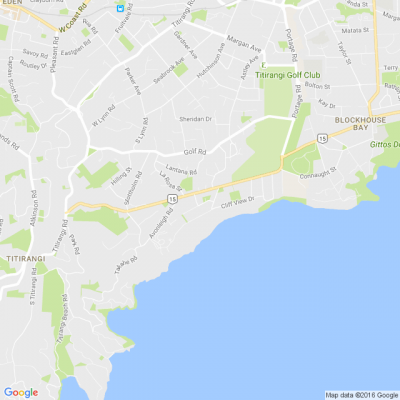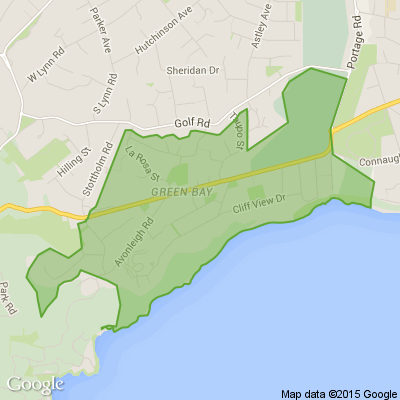IMPORTANT: Police warn public after hundreds of thousands of dollars lost in recent phone scam
Detective Sergeant Kevin Blackman from the Auckland City Financial Crime Unit, says Police have received a significant number of reports of people falling victim to a phone scam, which involves callers claiming to be from Spark and/or Police before convincing victims to withdraw or to transfer tens of thousands of dollars from their bank accounts. Last month, Police investigating the scam reports were able to intercept two separate packages in Auckland containing a total of $25,000. The two victims, one of whom was an 84-year-old woman, were identified and had their intercepted money returned by Police. Further enquiries revealed that both victims had poster further packages containing substantial amounts of money, which is yet to be recovered. Detective Sergeant Blackman says these examples are just two of the many victims of this phone scam across New Zealand. Police say there is a clear pattern of how innocent members of the public are falling victim to this scam and being tricked into posting large sums of money to various domestic and overseas addresses. “The victims in these matters are almost always contacted initially on their landline phones. “The caller typically claims they are from Spark, claiming there is a security or internet issue with their computer or router. “At some point in the conservation, the victims are usually told they are the subject of identity theft/fraud through their emails and told they are being transferred to a member of the “Police Cyber Crime Unit”, where they are spoken to by a person claiming to be a police officer. “The victim is then told that Police need their assistance to set up a “trap to catch the criminals”. They are convinced to withdraw large sums of money – often in the area of $10,000 - $15,000 – and given an address to post the money to or bank account to transfer it to. “The victims are often called repeatedly by the person claiming to be a police officer and talked into sending further large sums of money as part of the “trap”. “We are aware of victims being asked to send money to different addresses in Auckland, as well as overseas locations including Spain, Japan and Australia. “By the time some people realise they have been scammed, they have lost tens of thousands of dollars, which has likely made its way overseas making it very difficult to be recovered,” says Detective Sergeant Blackman. Police have received reports from some banks which indicate that there has been potentially hundreds of victims over the past few months across New Zealand.
“Not every case has been reported to Police so we are unable to confirm how much money has been sent to the scammers, but it is easily in the hundreds of thousands of dollars.” Detective Sergeant Blackman say many of the victims are vulnerable, older members of our community who are less technologically-minded and therefore more likely to believe claims they’ve fallen victim to computer hacking or identity fraud. “It’s imperative that you warn your family and friends. Have conversations with your parents and grandparents, inform your elderly or vulnerable neighbours and ensure that everyone is aware of this scam. “Never give your personal details over the phone to a stranger. If you think a call may be suspicious, hang up immediately and do not engage with the caller. “A Police officer will never ask for your bank details over the phone or ask you to transfer money. If you receive a call of this nature, hang up immediately.”The New Zealand Telecommunications Forum (TCF) warns that consumers should be suspicious of any unsolicited calls from telecommunications companies. “Telecommunications providers will never ring you and ask for personal details like your credit card details, bank account number or request access to your computer or laptop without you knowing why. They will also never ring unexpectedly and tell you that there is a virus or security issue with your computer,” said Geoff Thorn, CEO of the TCF.“If you do have some concerns about a call, ring the company back on their publicly listed number, not the number they called you from, and alert them to the call you have just received. They will let you know if it was a legitimate call.“We know that scammers can be persuasive, but if something seems to be unusual or completely out of the blue, then you should hang up.”
Fraud Education Manager for the Commission for Financial Capability, Bronwyn Groot, says the organisation fully supports this public warning.“We have heard of increasing numbers of fake ‘spark/telco’ scams and the result of falling for this scam are devastating.“We urge the public to report any incidents of this scam to the Police, their financial institutions and their telecommunications provider,” says Bronwyn Groot. Police believe the scammers operate overseas but understand people in New Zealand may be assisting with sending the packages of money offshore. Police want to hear from anyone who has information about this illegal activity. “If you are asked to receive money from a stranger, you are likely to be engaging in money laundering and could face prosecution,” says Detective Sergeant Blackman.“There is no legitimate reason for a stranger to need to put money into your account. If you are ever asked, do not accept any money and contact Police.” Anyone who believes they are a victim of a scam is advised to contact Police immediately. Anyone with information can contact Detective Sergeant Kevin Blackman by phoning 09 302 6400.
===========================================================
Poll: Do you think NZ should ban social media for youth?
The Australian Prime Minister has expressed plans to ban social media use for children.
This would make it illegal for under 16-year-olds to have accounts on platforms including TikTok, Instagram, Facebook and X.
Social media platforms would be tasked with ensuring children have no access (under-age children and their parents wouldn’t be penalised for breaching the age limit)
.
Do you think NZ should follow suit? Vote in our poll and share your thoughts below.

-
85.6% Yes
-
13.3% No
-
1.1% Other - I'll share below
What's your favourite recipe for courgettes?
Kia ora neighbours. If you've got a family recipe for courgettes, we'd love to see it and maybe publish it in our magazine. Send your recipe to mailbox@nzgardener.co.nz, and if we use it in the mag, you will receive a free copy of our January 2025 issue.

Need Event Medical Cover?
MRI provides modern medical solutions for a wide range of events and industries. From local sporting or community events - to large concerts and major festivals - we can provide tailored and professional medical cover that suits your needs.
Our experienced team of clinicians and operations managers can provide a complete risk assessment of your event and advise you on the most suitable medical expertise to have on site.
Get in touch with the team today at info@mri.nz








 Loading…
Loading…













